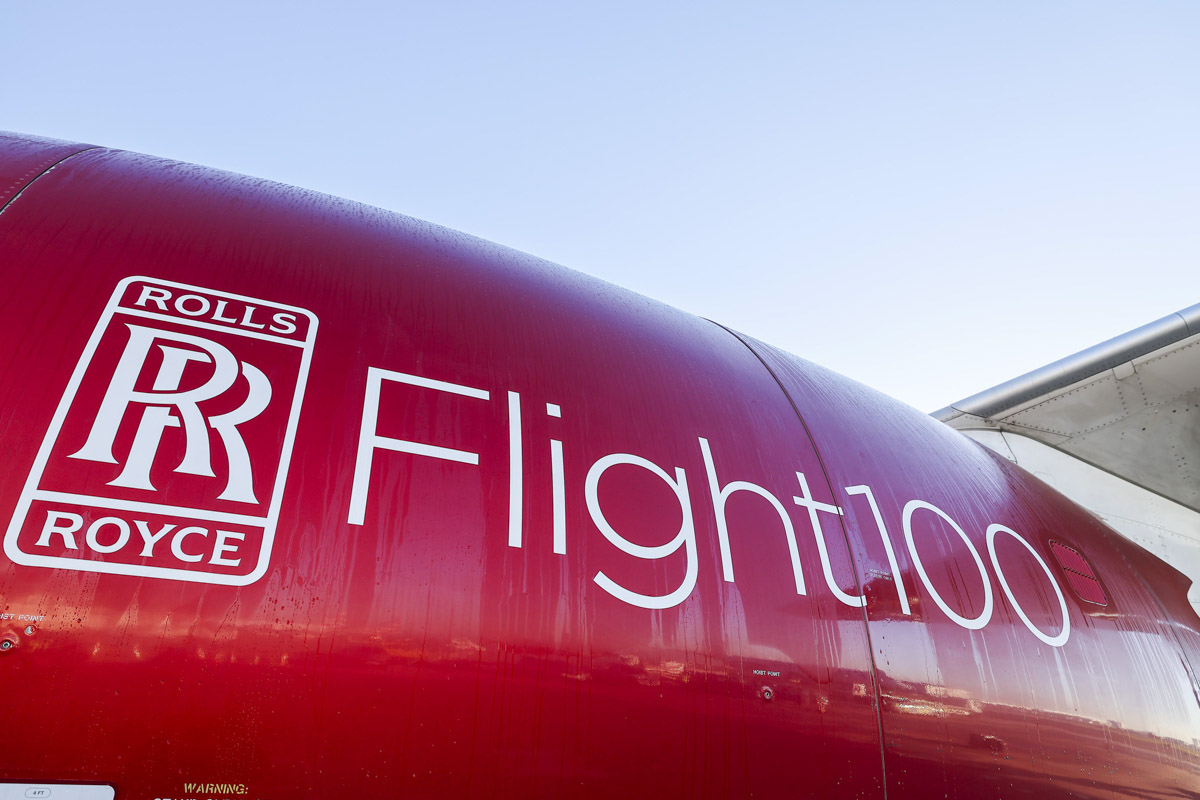What did we learn from Virgin Atlantic’s 100% sustainable aviation fuel ‘Flight100’ experiment?
Links on Head for Points may support the site by paying a commission. See here for all partner links.
On Wednesday, Virgin Atlantic published the scientific findings from the innovative ‘Flight100’ SAF test flight it operated in November last year.
You may recall that I was one of just over 100 ‘industry observers’ to join the flight, which became the first transatlantic flight on a commercial aircraft to operate with 100% sustainable aviation fuels.
It marked an important end to testing by Virgin Atlantic and its partners, including Boeing and Rolls-Royce, which subjected the aircraft’s engines to many hours of testing before Virgin’s Flight100 ever took off.
The challenge was partly funded by the Department of Transport which put up £1 million, matched by Virgin Atlantic. The goal was to validate assumptions and predictions with an end-to-end flight test.
The results are in
Over the past six months, Virgin Atlantic has been working together with it’s consortium partners, including the University of Sheffield and Imperial College, to process the data collected.
On Tuesday night I was invited to an event hosted by Sir Lindsay Hoyle at Speaker’s House in Parliament to find out more.
Here are the headline results:
- Overall, the flight saved 95 tonnes of CO2, a 64% reduction in emissions across the entire flight
- The sustainable aviation fuel used by the flight had a 1% improvement in energy density over regular jet fuel, reducing overall fuel burn by 350kg
- There was a 40% reduction in particulate emissions such as sulphur and nitrogen oxides, as well as reduced contrail formation
What this means for the future
One key feature of Flight100 is that it required no modifications to the aircraft, engines or any other aspect of flight. It was treated as a normal, commercial operation and held to all the same safety standards. The only difference was that the fuel used came from waste sources rather than virgin fossil fuels.
The results above prove that sustainable aviation fuel is at least equivelant to fossil-derived jet fuels. In many cases it is superior, offering a cleaner burn and the associated efficiencies.
For now the maximum volume of SAF that can be used on commercial flights remains at 50%, but Flight100 proves this is just a regulatory limit. There are no reasons why this cannot be increased in the future.
Of course the biggest obstacle to widespread SAF adoption remains production: total global volumes are around 1%, falling short of the 10% the UK Government is likely to mandate by 2030. UK production will need to scale up c.100 times from where it is now to meet that target.
Virgin Atlantic used the event to double down on calls for further support for SAF production, saying “We must now see urgent action from Government, oil majors and private capital to invest in the production capacity needed to deliver a thriving UK SAF industry.”





 Rhys
Rhys 





Comments (36)